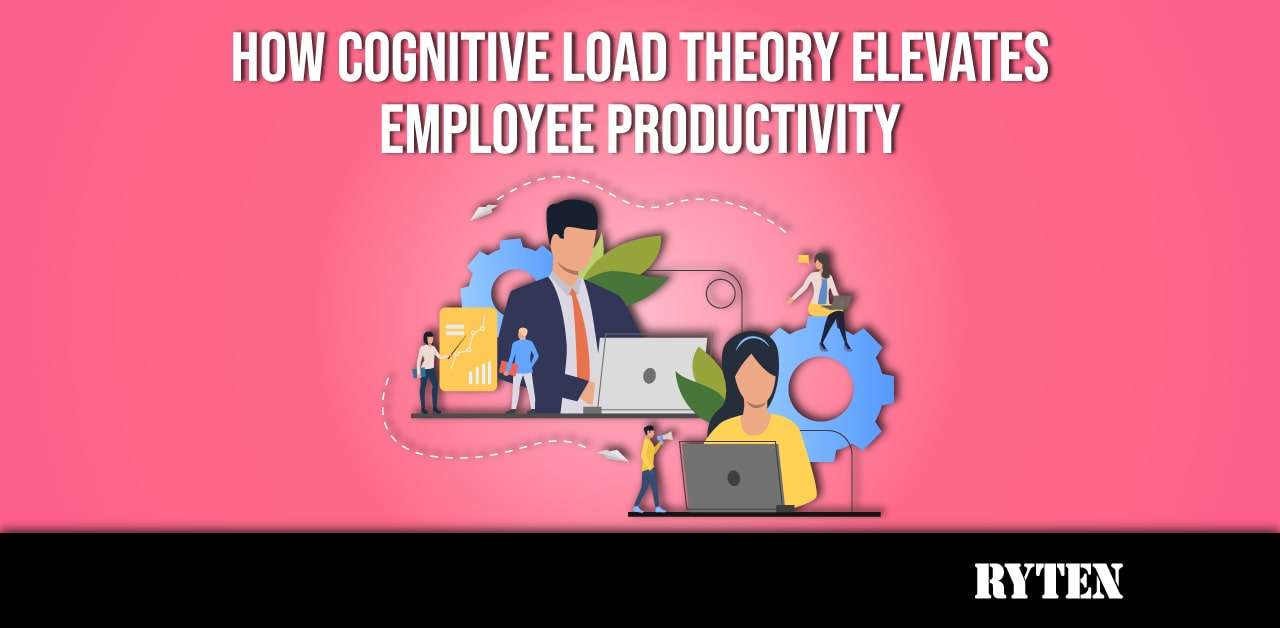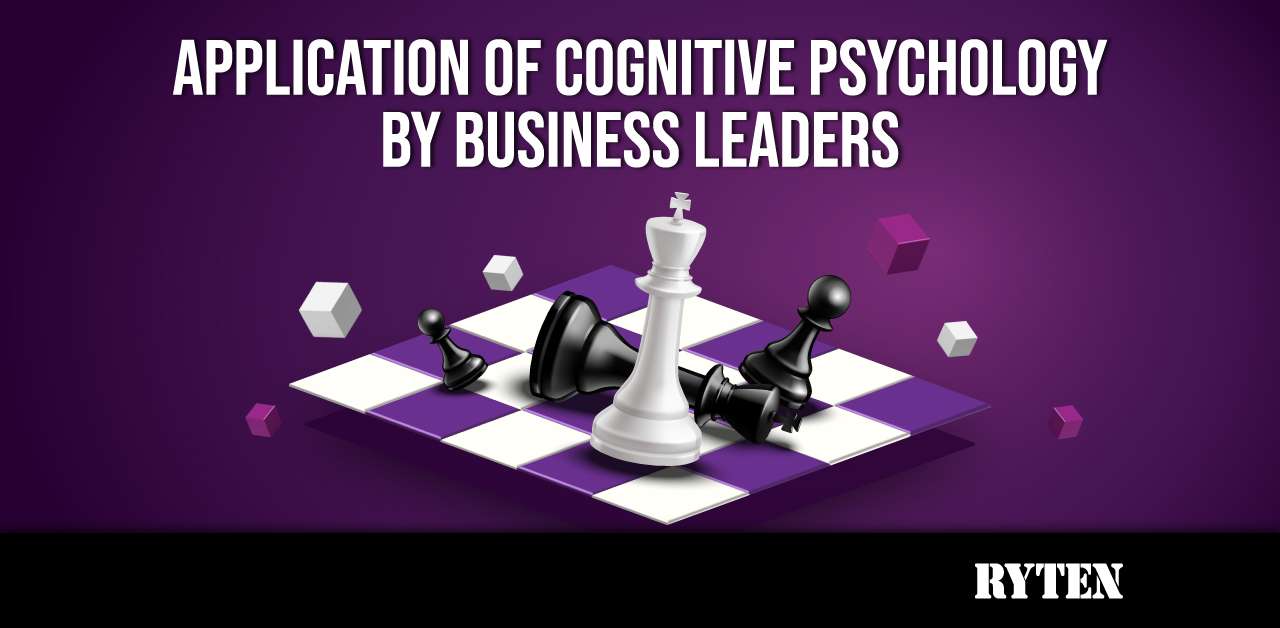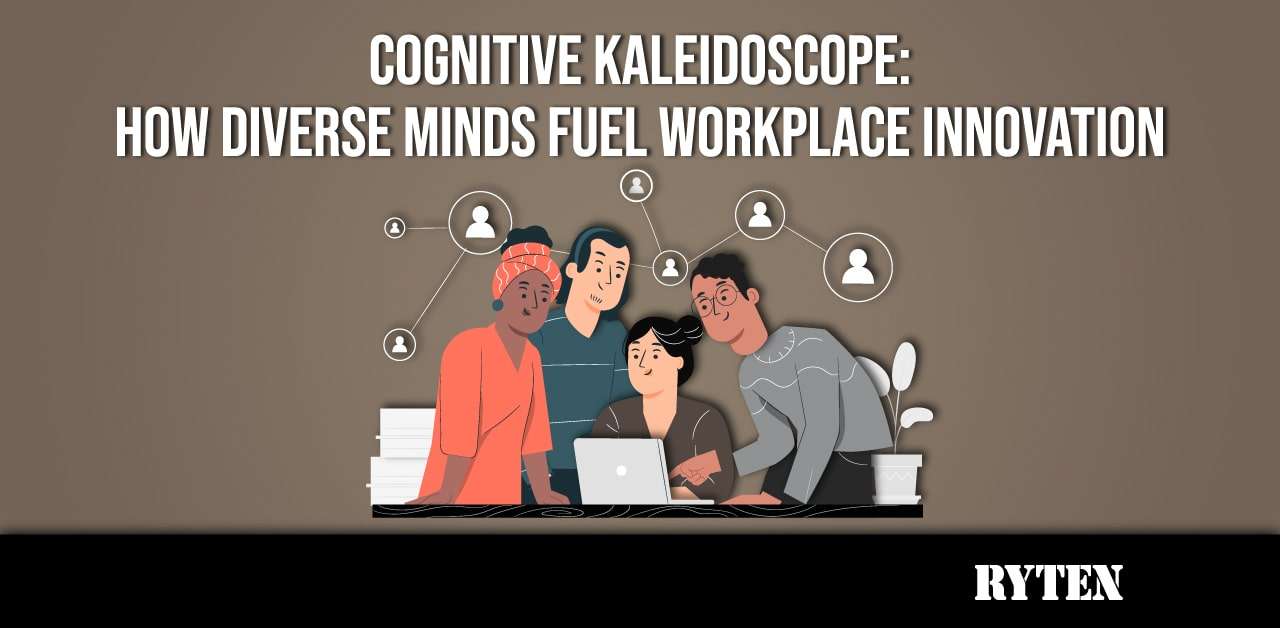COGNITIVE PERSPECTIVE OF EMOTIONAL INTELLIGENCE: COGNITION CONTEXT
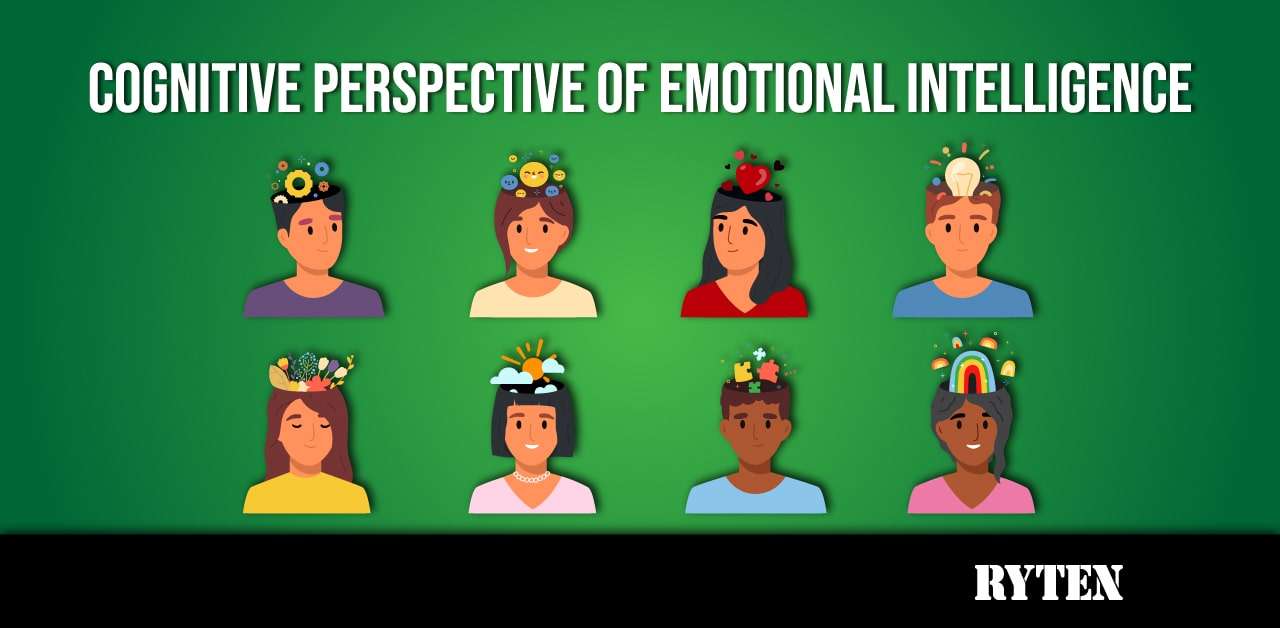
Introduction
In the dynamic theater of modern business, leadership has evolved beyond the traditional role of issuing commands and making decisions. Instead, it’s about understanding the intricacies of human emotions, managing them effectively, and leading with empathy. Emotional Intelligence (EI) has emerged as a crucial skill set for leaders, enhancing their cognitive abilities to make informed decisions and foster a collaborative and productive work environment. This article delves into the intersection of emotional intelligence and cognitive psychology in the context of leadership, exploring how leaders can develop their emotional intelligence. We will also provide examples of some of the biggest brands that have successfully implemented emotional intelligence in their leadership strategies.
This leader is not a character from a bestselling novel but a living embodiment of the convergence of emotional intelligence and cognitive psychology. Our journey begins here, as we embark on a riveting exploration of this intersection within the dynamic realm of leadership. We will uncover the secrets of developing emotional intelligence, all while drawing inspiration from the playbook of some of the world’s most influential brands. So, prepare to be captivated, for the path to harnessing the extraordinary power of emotional intelligence in leadership is about to unfold.
Emotional Intelligence: A Cognitive Perspective
Emotional intelligence, as defined by Daniel Goleman, is the ability to recognize, understand, manage, and effectively use one’s own emotions and those of others. It encompasses a range of cognitive and emotional skills, including self-awareness, self-regulation, empathy, and social skills. Leaders who possess a high level of emotional intelligence are better equipped to navigate complex interpersonal dynamics and make decisions that benefit both their organizations and their teams.
1. Self-Awareness: The Foundation of Emotional Intelligence
Leaders who excel in self-awareness are attuned to their own emotions, strengths, and weaknesses. They can objectively assess their performance and how their actions impact others. For instance, when faced with a challenging situation, a self-aware leader might acknowledge their frustration and take steps to calm themselves before addressing the issue with their team.
Example: Sundar Pichai, CEO of Google’s parent company, Alphabet Inc., is known for his self-awareness. He regularly reflects on his leadership style and seeks feedback from colleagues to better understand his impact on the organization.
2. Self-Regulation: Managing Emotions Effectively
Leaders who practice self-regulation can control their impulses and emotions, even in stressful situations. They avoid impulsive decisions and remain composed under pressure. This skill is vital in maintaining a positive work environment and making rational choices.
Example: Satya Nadella, CEO of Microsoft, is admired for his ability to stay composed during challenging times. He led the company through a significant transformation by regulating his emotions and fostering a culture of innovation.
3. Empathy: Understanding Team Members’ Emotions
Empathetic leaders can recognize and understand the emotions of their team members. They listen actively, show understanding, and offer support when needed. Empathy creates trust and strengthens relationships within the organization.
Example: Tim Cook, CEO of Apple, is praised for his empathetic leadership style. He often communicates openly with employees, addressing their concerns and providing resources to support their well-being.
4. Social Skills: Building Strong Relationships
Leaders with strong social skills excel in building rapport, communicating effectively, and resolving conflicts within their teams. They create a harmonious work environment that encourages collaboration and productivity.
Example: Elon Musk, CEO of Tesla and SpaceX, is known for his ability to build strong relationships with employees and investors. His social skills have been instrumental in the success of both companies.
Developing Emotional Intelligence in Leadership
Having unveiled the profound significance of emotional intelligence in leadership, it’s now time to chart the course towards its cultivation. Here’s a comprehensive roadmap that leaders can follow to hone these vital skills:
1. Embark on a Journey of Self-Assessment
Every odyssey begins with a keen understanding of one’s current position. Leaders should commence their quest for emotional intelligence by conducting a thorough self-assessment. This introspective voyage will lay the foundation for enhancing emotional awareness and self-regulation. Leaders must candidly examine their strengths, weaknesses, and emotional triggers to gain clarity on their emotional intelligence baseline.
2. Forge the Path of Feedback
In the world of leadership and emotional intelligence, feedback is the compass guiding leaders toward self-improvement. To embark on this path, leaders should actively seek open and honest feedback from colleagues, peers, and mentors. Constructive criticism, like signposts along the way, can illuminate areas for enhancement. Embracing this feedback constructively will enable leaders to adjust their course and fine-tune their emotional intelligence.
3. Navigate with Mindfulness
Mindfulness, akin to a trusty navigation system, is an invaluable tool for leaders. It equips them with the ability to regulate their emotions and remain anchored in the present moment. Leaders should incorporate mindfulness techniques into their daily routines, helping them stay steady amidst the turbulent waters of emotion. This practice fosters self-regulation and keeps emotional responses in check, ensuring that decisions are made with clarity and composure.
4. Construct Empathy Brick by Brick
Empathy is a cornerstone of emotional intelligence, a bridge connecting leaders to their team members’ experiences and emotions. To construct this bridge, leaders should prioritize active listening. This means not only hearing words but also striving to comprehend the perspectives and feelings behind them. By nurturing empathy, leaders can build trust and forge stronger connections within their teams.
5. Continue the Journey of Lifelong Learning
Like any epic journey, the pursuit of emotional intelligence in leadership is ongoing. Leaders should commit to continuous personal development. This involves attending workshops, immersing themselves in books that delve into emotional intelligence, and seeking guidance from experts in the field. Each encounter with new knowledge and experiences adds depth to their emotional intelligence toolkit.
Impact on Organizational Success
Emotional intelligence in leadership contributes to organizational success, leading to higher employee engagement, improved teamwork, and better decision-making.
1. Higher Employee Engagement
- Emotional Resonance: Leaders with high emotional intelligence can connect with their employees on a deeper level. They are attuned to the emotions and concerns of their team members, creating a sense of emotional resonance.
- Trust and Open Communication: This emotional connection fosters trust and encourages open communication within the organization. Employees are more likely to share their ideas, concerns, and feedback when they feel their leaders genuinely understand and care about their well-being.
- Increased Job Satisfaction: Employees who work under emotionally intelligent leaders tend to experience higher job satisfaction. They feel valued and supported, leading to greater motivation and commitment to their roles and the organization.
2. Improved Teamwork
- Conflict Resolution: Leaders with strong emotional intelligence are skilled at resolving conflicts within teams. They can navigate disagreements diplomatically, empathizing with the perspectives of all involved parties and finding mutually beneficial solutions.
- Enhanced Collaboration: Emotional intelligence promotes effective collaboration. Leaders who foster an environment of empathy and open communication encourage team members to work together harmoniously, leveraging each other’s strengths and compensating for weaknesses.
- Cohesive Teams: High emotional intelligence leaders are adept at building cohesive and emotionally intelligent teams. These teams tend to work seamlessly, capitalize on diversity, and consistently achieve their goals.
3. Better Decision-Making
- Reduced Impulsivity: Leaders with emotional intelligence are less likely to make impulsive decisions driven by intense emotions. Instead, they maintain composure and approach decisions with rationality.
- Data-Informed Choices: They consider not only the facts and figures but also the emotional aspects of a situation. This holistic approach to decision-making results in more well-rounded and thoughtful choices.
- Understanding Stakeholder Perspectives: Emotional intelligence enables leaders to understand the emotional needs and concerns of various stakeholders, including employees, customers, and investors. This understanding allows leaders to make decisions that align with these emotional factors, contributing to long-term success.
4. Enhanced Organizational Culture
- Emotional Tone-Setting: Leaders with emotional intelligence set the tone for the organization. Their behavior and communication style influence the overall culture, emphasizing empathy, inclusivity, and a commitment to well-being.
- Attraction and Retention of Talent: Organizations led by emotionally intelligent leaders often become magnets for top talent. Employees seek out environments where they can thrive emotionally and professionally, leading to higher retention rates and a competitive edge in recruitment.
5. Resilience in Adversity
- Navigating Challenges: Emotional intelligence equips leaders to navigate crises and challenges with resilience. They can manage their own emotions effectively and provide support to their teams during turbulent times, maintaining stability and confidence.
- Adaptive Strategy: Emotionally intelligent leaders are agile in adapting to changing circumstances. They can assess the emotional impact of changes on their workforce and implement strategies that mitigate negative emotions while embracing opportunities.
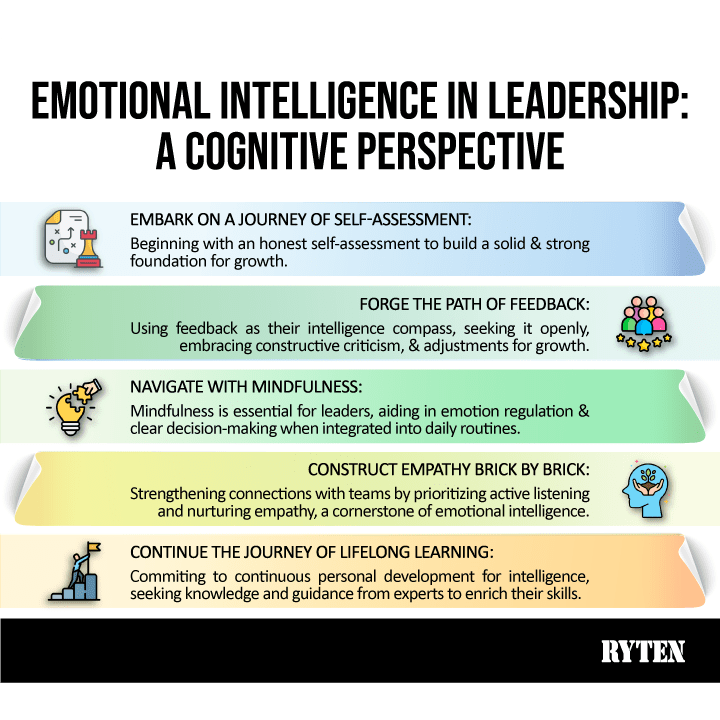
Conclusion
In conclusion, the intersection of emotional intelligence and leadership, viewed through a cognitive perspective, has proven to be a transformative force within the realm of modern business. As we’ve explored the essential components of emotional intelligence—self-awareness, self-regulation, empathy, and social skills—we’ve witnessed how each facet contributes to effective leadership, fostering a harmonious work environment and propelling organizations toward success.
Emotionally intelligent leaders, who possess the ability to understand and manage their emotions while empathetically connecting with their team members, are the vanguards of the future. They don’t merely issue orders and make decisions; they inspire, motivate, and elevate their teams to new heights. By prioritizing self-awareness, they forge a foundation of authenticity; through self-regulation, they exemplify composure and resilience. Empathy becomes their bridge to trust, communication, and collaboration, while their social skills weave the threads of unity and cohesion.
The impact of emotional intelligence extends far beyond the boardroom, permeating the organizational culture, enhancing teamwork, and empowering sound decision-making. It not only fosters higher employee engagement but also shapes a resilient response to adversity, making organizations better equipped to navigate the turbulent seas of the business world.
In an era where leadership is measured not just by financial metrics but also by the well-being and satisfaction of the workforce, emotional intelligence is not a mere skill; it’s the cornerstone of effective, empathetic, and forward-thinking leadership. As we look to the future, organizations that recognize and invest in the development of emotional intelligence among their leaders will find themselves at the forefront of success, poised to navigate the ever-evolving landscape of business with confidence, compassion, and unwavering effectiveness.


